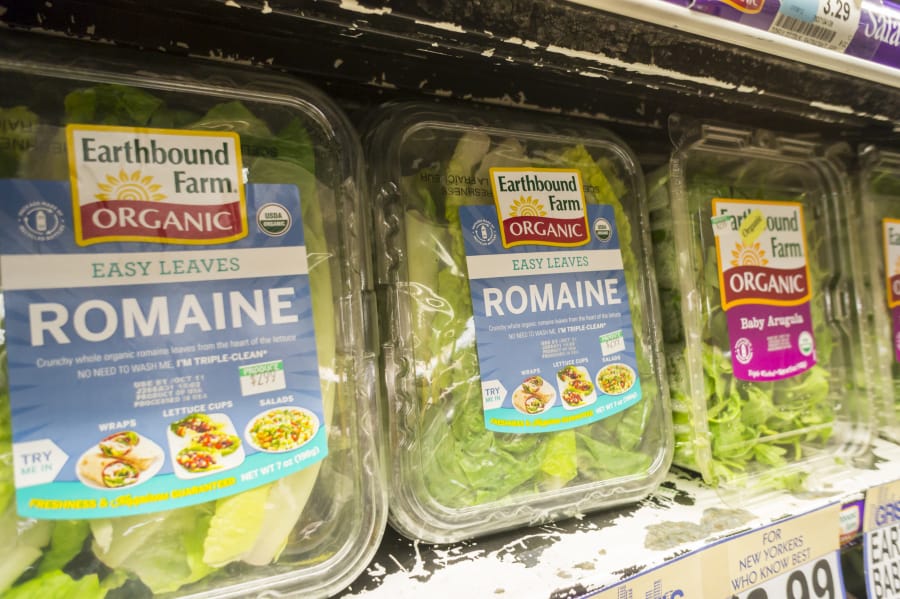Romaine lettuce is on its way back to grocery stores.
About a week ago, the U.S. Food and Drug Administration warned consumers to stay away from romaine lettuce after an outbreak of E. coli was linked to the leafy vegetable. The outbreak caused 43 people to become sick in 12 states and 22 people in Canada.
As part of its investigation, the FDA determined the location of the outbreak to the lettuce growing areas of the Central Coast of California. The region supplies a bulk of the romaine during the summer season. And since that season is over and no new cases of E. coli have been reported, federal health officials are lifting their do-not-eat-romaine recommendation, with a few qualifiers.
Under a first-of-its-kind voluntary agreement, the FDA said romaine growers and shippers can resume supplying retailers and the food industry as long as they identify where the produce was grown and when it was harvested.
The key factors are where and when. The FDA and industry representatives want consumers to know that lettuce harvested from the winter growing lettuce regions have not been linked to the recent outbreak of E. coli. Those regions include the Imperial Valley, Coachella Valley and the desert regions of Arizona and Yuma as well as Florida and Mexico.




